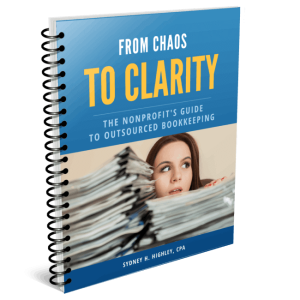
What You Need to Know About Best Financial Reports in 99 Words
Financial reporting is crucial for nonprofits to maintain transparency, ensuring donors and stakeholders see how funds are used. Producing the best financial reports builds trust, clearly showing your organization’s financial health and impact. Accurate, timely reports help nonprofits stay accountable and compliant with regulations. Outsourced accounting services play a vital role in this process, providing expertise that simplifies complex reporting requirements. Partnering with professionals allows nonprofits to focus on their mission and ensure their financial reports meet the highest standards.
Want more? keep reading…
Table of Contents
ToggleComponents of the Best Financial Reports for Nonprofits
What do nonprofit organizations need to create the best financial reports? Let’s take a look.
1. Income Statements for Nonprofits
The income statement, often called the statement of activities for nonprofits, shows the organization’s revenue and expenses over a specific period. It highlights how much money came in from donations, grants, and other sources and where it was spent.
The report is crucial for understanding whether your nonprofit operates at a surplus or deficit. Nonprofits must separate restricted and unrestricted revenue so stakeholders can see how funds are used. A well-prepared income statement helps nonprofits ensure financial sustainability and demonstrate accountability to donors and board members.
2. Balance Sheets for Nonprofits
A balance sheet, or statement of financial position, provides a snapshot of your nonprofit’s assets, liabilities, and net assets at a specific time. It shows what your organization owns (assets) and owes (liabilities), offering a clear picture of financial stability.
The balance sheet helps track the amount of unrestricted and restricted net assets available for nonprofits. It is essential when planning for future programs and managing cash flow. A strong balance sheet demonstrates the nonprofit’s ability to manage its resources effectively, which reassures donors and grantmakers about the organization’s financial health.
3. Cash Flow Statements for Nonprofits
The cash flow statement tracks the movement of cash in and out of the organization over time. It breaks down cash flow into three areas: operating, investing, and financing activities. For nonprofits, this is a vital tool for monitoring liquidity.
A healthy cash flow ensures that the organization can meet its immediate needs while planning for long-term sustainability. Clearly showing how cash is generated and spent helps nonprofits manage their financial resources wisely and avoid unexpected shortfalls.
Tracking Restricted vs Unrestricted Funds
Tracking restricted vs. unrestricted funds is crucial for nonprofits to ensure transparency and accountability.
- Restricted Funds –Donations for specific programs or purposes
- Unrestricted Funds –Can be used for general operations.
Nonprofits must carefully report how restricted funds are allocated to honor donor intent and maintain trust.
The distinction also helps organizations plan better by knowing which funds are flexible and which are committed to specific projects. Tracking both types of funds in financial reports enables nonprofits to demonstrate responsible stewardship and comply with legal and donor requirements.
Why Nonprofits Need the Best Financial Reports
Here’s why you must invest in creating your financial reports for nonprofits…
To Gain Donor Trust
Clear and accurate financial reports are essential for building trust with donors. When donors see straightforward, honest reporting, they feel more confident that their contributions are being used wisely.
Transparency in financial reporting shows that your nonprofit values accountability, making donors more likely to support your organization in the future.
To Ensure You Meet Regulatory Requirements
Nonprofits must also meet specific regulatory requirements, which vary by location. Clear financial reports help ensure compliance with these regulations and avoid potential legal issues. Your organization demonstrates responsibility and trustworthiness by providing detailed and accurate financial information, giving stakeholders a sense of security.
For Financial Health
Well-prepared financial reports offer a snapshot of your nonprofit’s overall financial health. They highlight income, expenses, and how funds are allocated to different programs.
When stakeholders see the positive results of their support, it strengthens their commitment to your cause.
Outsourced Accounting Services Ensure the Best Financial Reports
There are several ways outsourced accounting services help nonprofits create the best financial reports and overall financial management:
- Accuracy & Timeliness – Experienced accountants understand nonprofits’ specific requirements and ensure that reports are prepared correctly and on time. It lets your organization focus on its mission instead of worrying about financial details and deadlines.
- Overcome Nonprofit Challenges – Professionals in outsourced accounting bring valuable expertise to tackle nonprofit-specific challenges. They know how to handle grant tracking and navigate complex financial issues that may arise so you can avoid costly mistakes and align your organization with regulations.
- Cost-Effective Solutions – For many nonprofits, hiring an in-house accounting team isn’t feasible. Outsourced accounting services provide a cost-effective solution, allowing you to access expert help without the overhead costs of additional staff. Flexibility ensures your financial reports are reliable, and you can allocate more resources toward your important programs and initiatives.
Final Thoughts
Clear and accurate financial reports are vital for nonprofits to build trust with donors, ensure compliance, and reflect financial health. These reports should be easy for everyone—board members, donors, and stakeholders—to understand, empowering them with the knowledge to make informed decisions and avoiding complex jargon.
For the best financial reports that support your mission, contact Daily Balance today. We’re here to help you navigate your financial journey clearly and confidently!
Nonprofit Resources

About the Author
Syd Highley is a CPA and Managing Principal of Daily Balance, a nonprofit accounting firm located in Sacramento, CA. Offering virtual nonprofit bookkeeping services that take the place of an in-house accounting department, with the added benefits of financial audit representation and virtual CFO services, Highley empowers nonprofits to focus on their missions while saving up to 40% in accounting costs.






